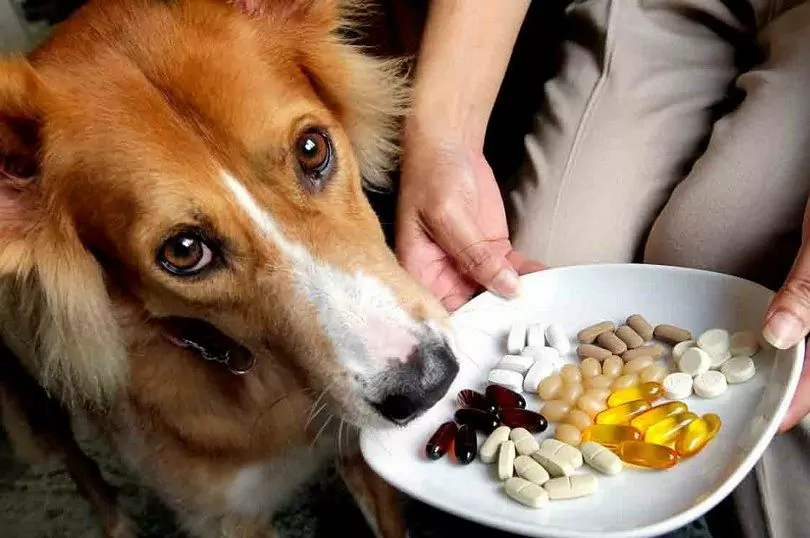Can dogs eat shrimp? Do dogs need shrimp? Dangers of Shrimp for Dogs
2022-06-22
Although dogs are able to eat shrimp in small amounts, they should not eat too much. Shrimp contains a lot of salt, eating too much will increase the burden on the dog's body; and the phosphorus contained in shrimp may lead to food poisoning in dogs. Do not give your dog raw shrimp to avoid parasites endangering your dog's health, and cook only with water to reduce your dog's salt intake.
I. Can eat but eat sparingly
Dogs are able to eat shrimp in small amounts, and a large amount of calcium and high-quality protein contained in shrimp is very beneficial to the dog's growth and development. However, if you eat a lot of shrimp, the excessive salt in the shrimp will add to your dog's body burden, which is not good for your dog's health. At the same time, some trace elements and hormones contained in shrimp may disrupt the endocrine system of the dog, leading to skin diseases in dogs. The phosphorus contained in shrimp may even cause food poisoning in dogs.
II. The dangers of shrimp for dogs
When looking at the safety of shrimp for dogs, there are five risk factors to consider.
1. Dogs that are not used to eating shrimp or that have eaten shrimp with seasonings and butter can be susceptible to pancreatitis or gastrointestinal distress after they eat shrimp. Too much oil, fat, or seasoning can cause gastrointestinal upset or pancreatitis.
2. Shrimp tails (shells) can easily get stuck in the dog's esophagus and cause choking or become a foreign body in the digestive tract. This is very common in small dogs.
3. Eating large amounts of shrimp tails can cause gastrointestinal distress and constipation.
4. Raw shrimp may contain certain bacteria that can infect your dog and even you, such as E. coli. E. coli, Salmonella, or Listeria can all cause symptoms of infection in dogs. 5.
5. Some dogs may be allergic to shrimp.
Important: Any food can cause gastrointestinal upset in dogs. What cannot cause disease in one dog may cause disease in another dog. The same thing can happen to people. Some foods can bother some people, but may not affect others.
If your dog has trouble swallowing, vomiting, diarrhea, not eating, or lethargy after eating shrimp, call your veterinarian or the nearest emergency clinic.
Three: Do dogs need shrimp?
There is nothing in shrimp that your dog needs, but shrimp is a very good source of protein and nutrients.
The safest way to feed shrimp to your dog
The safest way to give your dog shrimp is to offer a small amount of unseasoned or lightly seasoned cooked shrimp. If feeding shrimp, one shrimp is enough for a small dog, while for a large dog, it may take 2 or 3 shrimp to be enough.
Shrimp is rich in nutrients that dogs need, such as vitamin B12, niacin, phosphorus, and antioxidants.
Vitamin B12 is important for your dog's metabolic processes and plays an important role in gastrointestinal health; niacin, known as vitamin B3, boosts your dog's own immunity throughout the day and promotes proper cardiovascular activity; phosphorus is vital to the formation and health of your dog's bones and teeth, and it works in tandem with vitamin B. It also helps with kidney function, nerve signaling, and maintaining a normal heartbeat. In addition, shrimp is also rich in omega-3 fatty acids. omega 3 fatty acids are an important component of cell membranes and they help regulate blood pressure and relieve inflammation in the dog's body. Shrimp is also low in fat, calories, and carbohydrates, so if your dog is on a diet, shrimp is a good choice.
So it seems that shrimp is something that is good for dogs, so is it okay to give them more? The answer is no. Because of the high cholesterol content of shrimp, dogs eating too much shrimp may lead to high cholesterol in dogs. If the dog itself suffers from high blood lipids or is older dogs, it is not suitable to eat shrimp. In addition, shrimp contains many high-quality good proteins, but these good proteins are not necessarily suitable for dogs, too much intake may lead to allergies to protein, but also the dog's skin oil overproduction, is prone to cause skin disease. If the dog is allergic to seafood or if the gastrointestinal function is not so good, the owner should not let the dog eat shrimp. If you want to give your dog shrimp, remember to help them remove the shells, heads, and tails of the shrimp first. Because the shell of the shrimp is very difficult to digest, and the head and tail of the shrimp, are very sharp. If the dog eats the whole shrimp, it is easy to make their throat and gastrointestinal tract injury, serious cases may also make the dog choke or internal bleeding. In addition, shrimp, like fish, should be cooked before giving them to eat. Because raw shrimp may carry some germs and parasites, cooking the food eliminates these concerns.
If you are not sure if your dog is allergic to shrimp, you can feed your dog a little shrimp and see if they have any allergic symptoms such as redness, itching, vomiting, or diarrhea. If they do, take them to the doctor right away.
Dogs can eat shrimp. At the same time must be cooked shrimp, if you eat raw shrimp, there will be a lot of parasites and bacteria. The consumption leads to vomiting, diarrhea, and acute gastrointestinal symptoms in dogs. Shrimp contains a lot of high protein, which is very good for the body of the dog. But at the same time, shrimp contains more salt and phosphorus, too much intake of salt and phosphorus, which is toxic to dogs.
4. Dogs can eat shrimp shells
Dogs can eat shrimp shells, which contain a lot of calcium to replenish the body's needs, and need to be supplemented with the right amount of calcium during the dog's skeletal development or in older dogs.
Puppies eat a small number of shrimp shells is no problem, shrimp belong to seafood products, but generally, we eat shrimp will have more seasoning, dogs eat more salt will lose hair, especially the Satsuma, hair quality is still very important. When feeding shrimp shells to your dog you need to break the shells to avoid them scratching your dog's esophagus or getting stuck in your throat. In addition, seafood substances are allergenic, so be careful when feeding shrimp shells to your dog to avoid allergic reactions.
Expanded knowledge:
Raw shrimp is a source of all kinds of food bacteria, including the dreaded salmonella and listeria, and even undercooked shrimp can make your dog sick, so don't give your dog raw shrimp remember to cook it well and cook it thoroughly.
Dogs should not eat shrimp shells and tails because they are a choking hazard for dogs. Shrimp tails and shells are made of chitosan, which is difficult to digest, and their brittle, sharp texture can get stuck in the digestive tract or through the intestinal wall, which can be harmful to your dog.
Food contraindications:
Dogs can not drink milk because of lactose intolerance, these dogs are unable to digest and absorb the milk, and not all dogs can not drink milk, but many owners can not tell if their dogs have lactose intolerance, for the safety of dogs, it is recommended not to feed milk.
Now that the weather has turned cooler, dogs are prone to colds and fevers, and owners have taken the liberty of feeding them human cold medicine, not knowing that human medicine should not be used for dogs. Dogs use human drugs after the fever is prone to aggravation and other adverse reactions, the amount of more may also lead to dog death. It is recommended that when your dog has a cold, it is best to use special medication for dogs.
#
Shrimp shell
#shrimp tail
#raw shrimp
#vitamin B
#salt
#intestines and stomach
#cooked
#lead to
#protein
Was this article helpful to you?
Other links in this article
Nederlands:
Kunnen honden garnalen eten? Hebben honden garnalen nodig? Gevaren van garnalen voor honden
Português:
Os cães podem comer camarão? Os cães precisam de camarão? Perigos do camarão para os cães
português (Brasil):
Os cães podem comer camarão? Os cães precisam de camarão? Perigos do camarão para os cães
中文简体:
狗能吃虾吗?狗需要虾吗?虾对狗的危险
中文繁体:
狗能吃蝦嗎?狗需要蝦嗎?蝦對狗的危險
Comments

Is a dog's mouth cleaner than a human's? Dogs' mouths need regular cleaning

Can dogs eat beans? Do dogs eat beans for health?

Can dogs eat lemons? Fruits that dogs should not eat more of

Do dogs have nightmares? Are dogs' dreams similar to humans'?

Can dogs eat raw beef? The benefits and drawbacks of beef for dogs

Is raw meat good for dogs? Can dogs eat raw chicken?

Can dogs eat pomegranates?

Can dogs eat ham?Can all types of ham hocks be eaten?

How to give a dog a bath

Can dogs eat kimchi?








